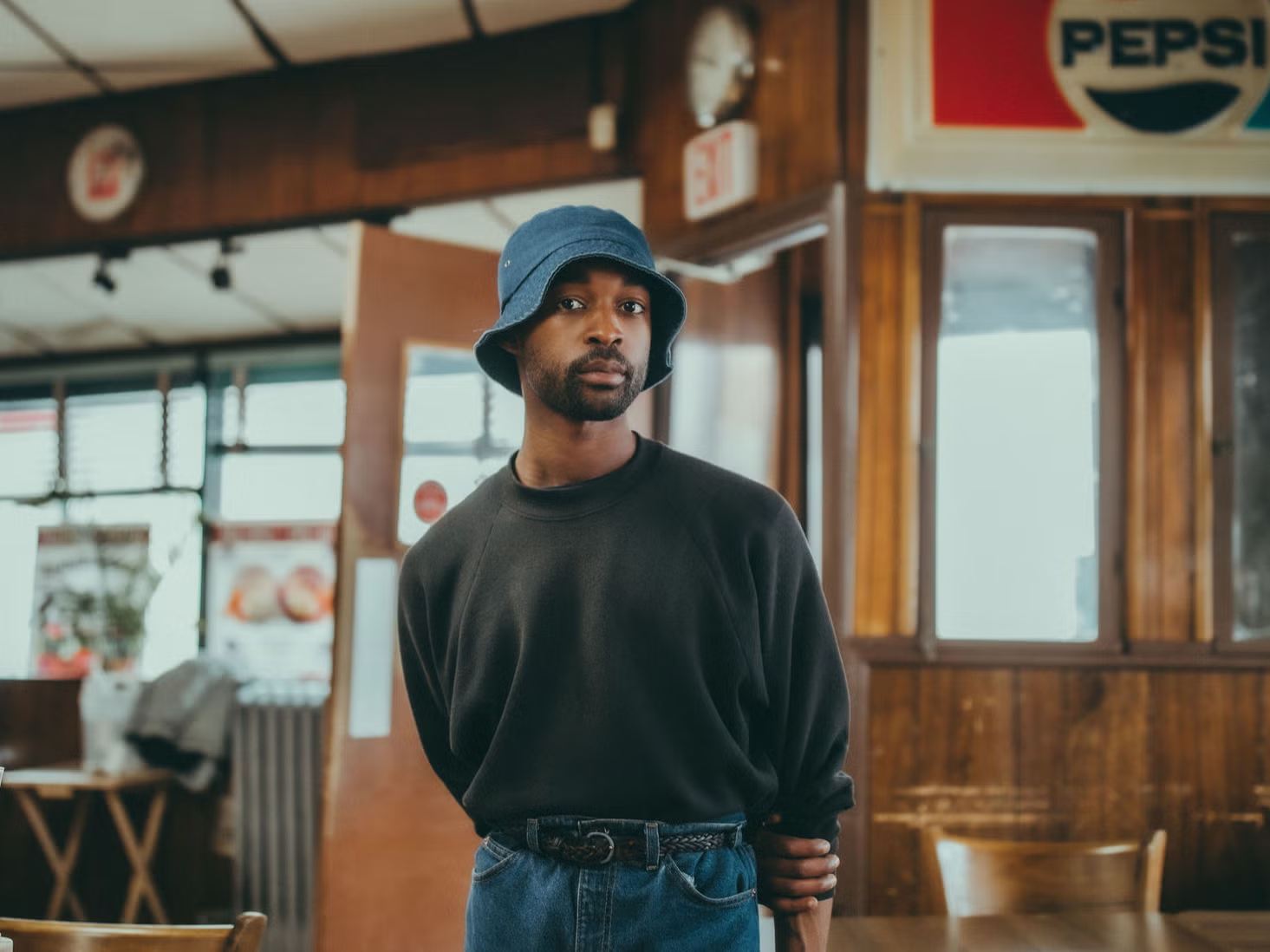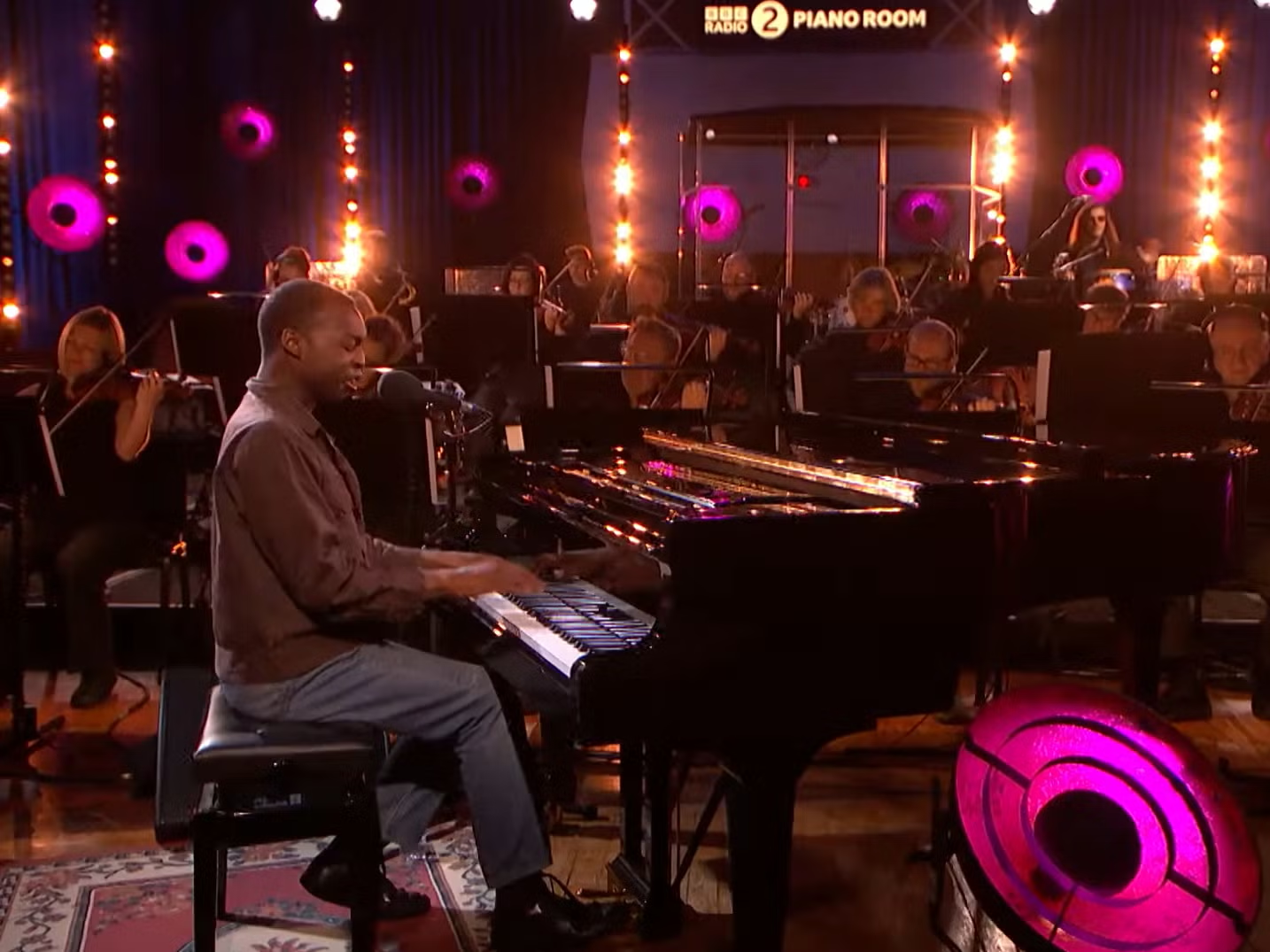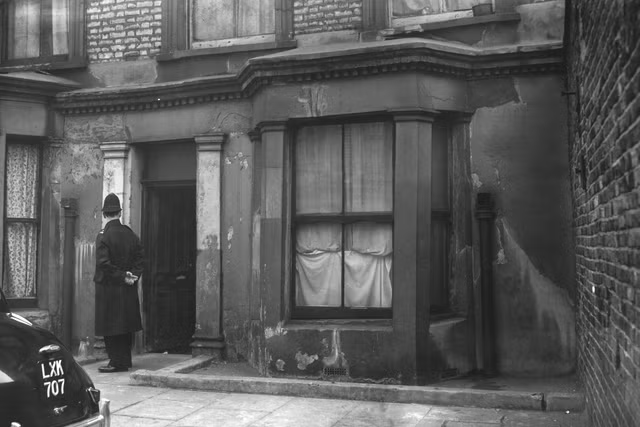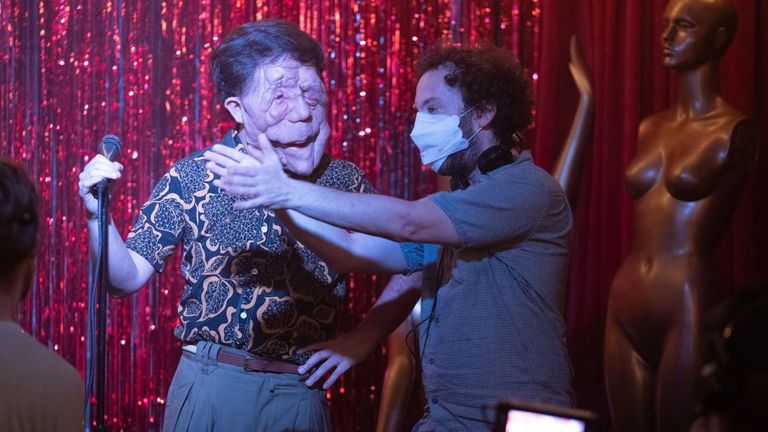Your support helps us to tell the story
Support NowOur mission is to deliver unbiased, fact-based reporting that holds power to account and exposes the truth.
Whether $5 or $50, every contribution counts.
Support us to deliver journalism without an agenda.

Louise Thomas
Editor
Jalen Ngonda was busted. He’d been belting “Baby Love” by The Supremes, dancing around the living room of his childhood home in Wheaton, Maryland, when his mum walked in. “You can sing!” she exclaimed. Until then, the painfully shy teenager hadn’t shared his talent with anyone. But 15 years later, the rest of the world is beginning to catch on, too.
Ngonda’s debut album, Come Around and Love Me, was released last year to effusive reviews. A gorgeous collection of sepia-toned soul, R&B, rock and doo-wop, it’s the perfect vehicle for his extraordinary vocals. Reminiscent of Marvin Gaye or Smokey Robinson, it’s smooth and supple, sliding across buttery melodies and lifting to a mellifluous falsetto. Songs such as “If You Don’t Want My Love” are backed by jangly guitars and shuffling percussion; “What a Difference She Made” – a romantic ode to “a girl with curly hair… and rainbow flares” – pairs celestial harmonies with sunshine-bright piano notes.
This summer at Glastonbury, his sweet-sounding tenor charmed the notoriously tricky (read: hungover) Sunday crowd who gathered beneath ominous rainclouds to listen. Indebted though his sound is to the Sixties and Seventies, it’s a testament to the songwriting that it easily transcends pastiche, possessing a timeless quality he says is rooted in its universal themes of love and romance.
“I believe we’re all romantic – I guess some people hide it more,” he says, unwilling to venture near that part of his personal life. The title of his new single “Anyone in Love” is similarly opaque: “It wasn’t directly about my life or anything like that, but it’s along the lines of what we all have gone through in life, and the things that keep us human,” he says. “We’re all experienced love and heartbreak.”
Born and raised in the Washington, DC suburb of Wheaton, Ngonda relocated to Liverpool in 2014 to study at the Institute for Performing Arts and has lived there since. The move was something of a culture shock initially, but it wasn’t long before he was calling the city home. “I love the people, I love the Scouse-ness… it’s also the perfect-sized city, where you don’t feel too trapped but it’s not overwhelming, either,” he says. Its thriving music scene and rich history (think The Beatles, Gerry and the Pacemakers, and The La’s) are obvious draws: “Liverpool is the ideal place for me and has been for the past 10 years.”
When we speak, though, he’s back in Maryland visiting family, in the same neighbourhood where he went to school and jumped fences to get to a friend’s house. He describes it as an “average American” suburb, albeit one of the more diverse parts of Maryland. “There’s a big Latino population, African Americans, Jewish… there are lots of different cultures, music, food,” he says. “I felt lucky growing up here.”

It was there that he discovered his love of Motown, aged 11, listening to his father’s record collection. From the moment Ngonda heard the opening guitar licks and strolling bass of “My Girl” by The Temptations, he was hooked. “It revamped my mind, and I became an instant nerd,” he says now, adding with a laugh, “Well, I was already a nerd, but a bigger nerd.” Ngonda would beg his parents to take him to the mall to buy more Motown CDs. They scrimped and saved for his first guitar, a Fender Squier, and he taught himself how to play while singing along to his favourite tunes.
Still, Ngonda didn’t think of himself as a singer. “I wouldn’t dare to sing with someone in the house because I just felt too embarrassed,” he says. It’s not hard to believe – Ngonda is far from a showy performer and veers into self-deprecation when talking about his own music.
“When I sang, it was because I loved the song, or if I was in the choir at church,” he says. Ngonda played the drums at church when he was 15; a year later, he was playing the organ in different churches around town. It was only after his mum caught him singing to The Supremes that he entered a school talent show where he belted Stevie Wonder’s triumphant “Uptight (Everything’s Alright)” and “Ain’t Too Proud to Beg” by The Temptations. He danced, he sang, he did the splits.

Enjoy unlimited access to 70 million ad-free songs and podcasts with Amazon Music
Sign up now for a 30-day free trial
Sign up
Enjoy unlimited access to 70 million ad-free songs and podcasts with Amazon Music
Sign up now for a 30-day free trial
Sign up“I shocked everybody,” he recalls, laughing at the memory. “Including my classmates, who had no idea I was even musical.” Newly confident, he joined a few bands in high school and started to write his music; he’s now working on the follow-up to Come Around and Love Me.

Ngonda arrived at his parents’ house from New York, where he was working on yet more songwriting. I wonder if being back in the US has heightened his awareness of the looming election; Ngonda says you can see Capitol Hill from certain buildings in his hometown.
“There’s always an atmosphere in America,” he says, with an air of resignation. “Whatever happens [in the election], America is going to be America. I think you have to go to a deeper place if you really want to change things – you’ve got to start in your own town.” I tell him his comments echo those made by pop singer Chappell Roan, who instead of endorsing a presidential candidate encouraged fans to use their “critical thinking skills” and “vote small, vote for what’s going on in your city”.
I think you have to go to a deeper place if you really want to change things – you’ve got to start in your own town
“People are so focused on what’s going on in DC, but they’re not worried about what’s going on in their local community. It starts there,” Ngonda says before stopping himself, “– but that’s a whole other conversation.”
To date, his songs have steered clear of politics, in keeping with the era of music he emulates. “[Most of the] songs from that time were love songs,” he says. “It’s the most human thing to talk about.” This is not to say he’ll only ever write love songs: “That’s just where I’m at, and I don’t want to force myself to write something I can’t feel.”
‘Anyone in Love’, the new single by Jalen Ngonda, is out now
Disclaimer: The copyright of this article belongs to the original author. Reposting this article is solely for the purpose of information dissemination and does not constitute any investment advice. If there is any infringement, please contact us immediately. We will make corrections or deletions as necessary. Thank you.




